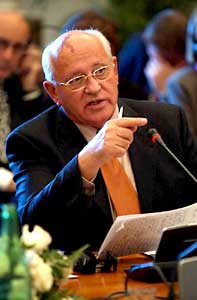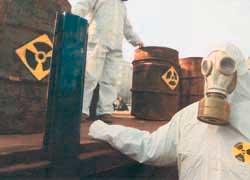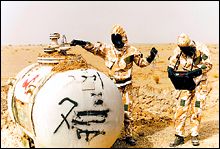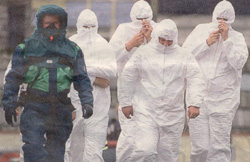 |
|
Eliminate the tools of future terrorism Article in The Boston
Globe
I am reminded of the importance of these historic
Soviet-American agreements by
the tragedies of Sept. 11. My first reaction to the attacks on the
United States was Only by common efforts will we be able to find
the effective response to this challenge. The tragedy of Sept. 11 was a heartbreaking
reminder of the fragility of life and civilization. The detonation of just one nuclear warhead equals
the impact of 100 Chernobyl explosions. Indeed, one of my greatest regrets and concerns
is that the decade of the 1990s was not used effectively to do away
with the political, military, and environmental legacies of the
Cold War. I believe the steps that former President George
Bush and I took 10 years ago to take nuclear weapons off high alert
and to secure reductions in nuclear stockpiles can serve as a model
for action today. A good place for both nations to start would be
to abandon the Cold War policy of If the United States and Russia were to stand down the thousands of nuclear weapons they still maintain on hair-trigger status, it would be a major step toward reducing the threat of nuclear war. The time has come to relegate to the past the
Cold War mind-set and dismantle the dangerous apparatus that it
created. Let us remember that the United States and Russia are under
the obligation they assumed by signing the Nuclear Non-Proliferation
Treaty to eventually eliminate I attach equal importance to unilateral arms-reduction commitments and to bilateral and multilateral disarmament treaties. It would be a cause of great concern if major nuclear powers abandoned or neglected multilateral forums, or took steps that would endanger the entire structure of arms control treaties, many of which, such as the 1972 ABM Treaty, are of as much value today as they were during the decades of nuclear confrontation. Nuclear powers should display special responsibility
setting an example for the rest of the world and avoiding any steps
that might lead to the proliferation of weapons of mass destruction. In my role as president of Green Cross International, I have continued to build upon the work we began with the INF, SALT, and START treaties, the Chemical Weapons Convention, and the 1991 unilateral commitments of the United States and Russia. Our organization has been a key player in the United States and in Russia to eliminate the threat of chemical weapons, to build new coalitions to facilitate their environmentally safe dismantlement,and to help encourage public engagement in the disarmament process. Now we are expanding our work toward reducing the threat of nuclear weapons, the single greatest environmental threat we face. We will also need international institutions
like the United Nations to play a much greater role if we are to
deal successfully with the threats and challenges we are facing
in this new century. But first and foremost, we must use this historic
opportunity of heightened public awareness and concern to continue
on the path toward the ultimate abolition of all weapons of mass
destruction - nuclear,
Mikhail S. Gorbachev was the last president
of the Soviet Union. |
   
|
|